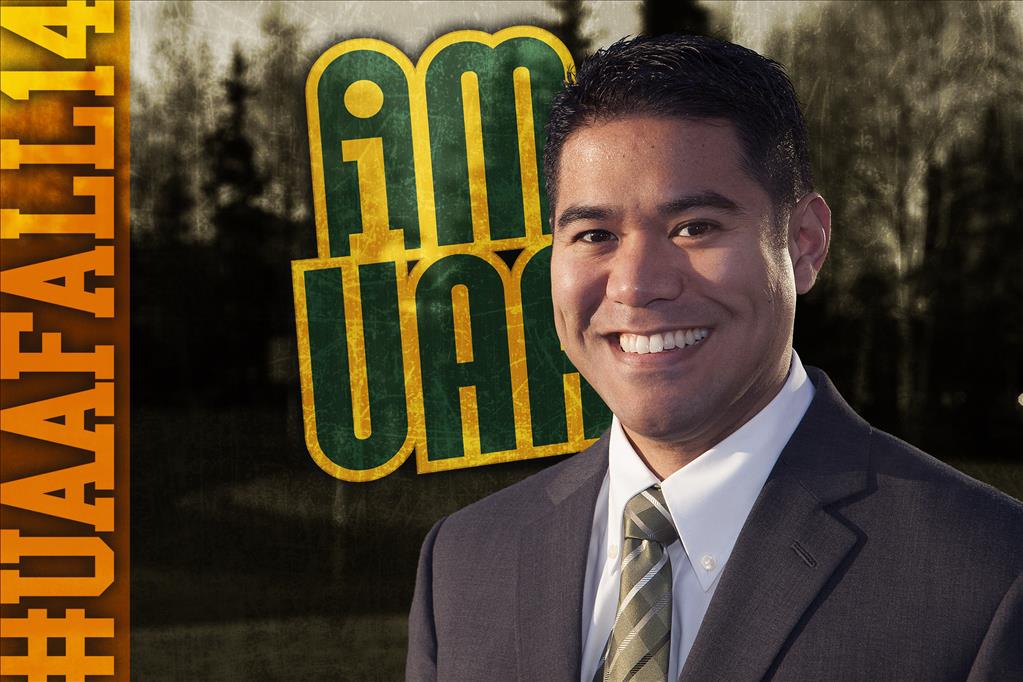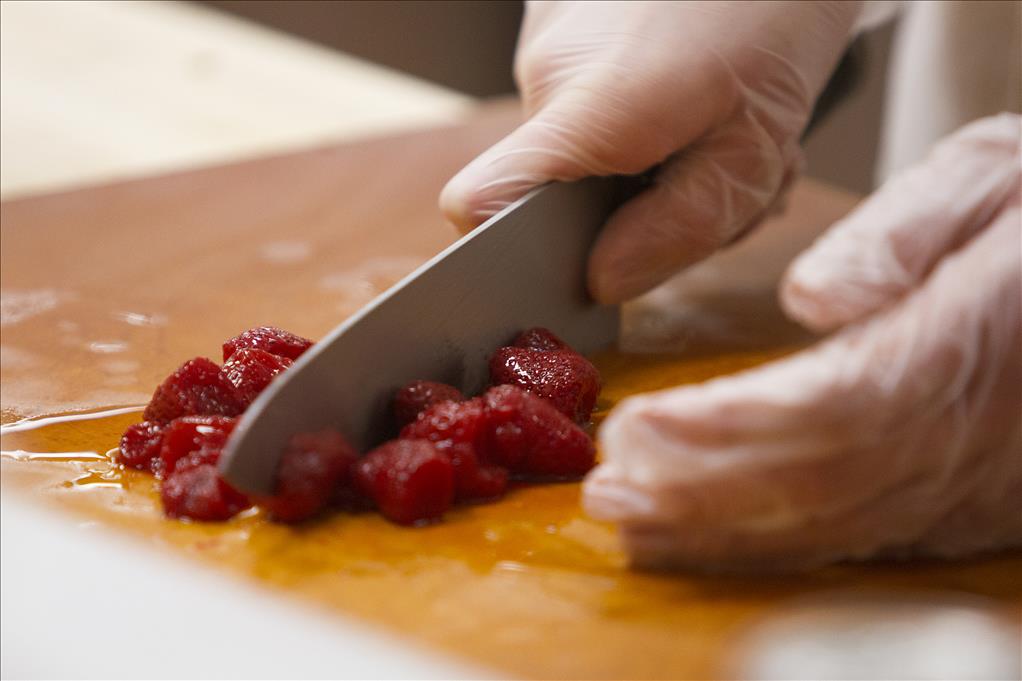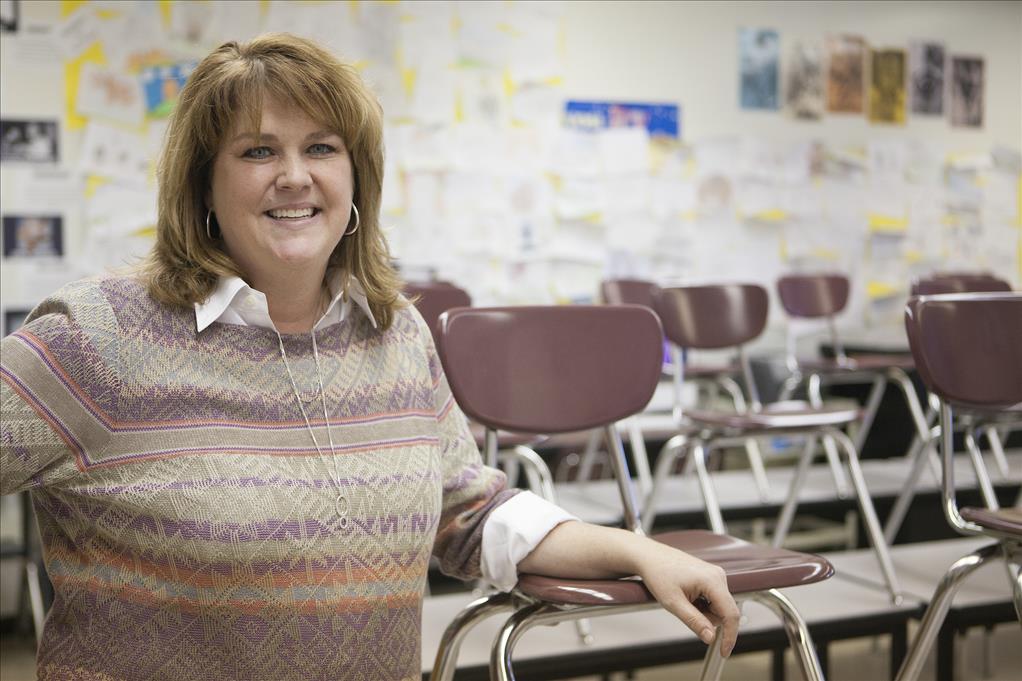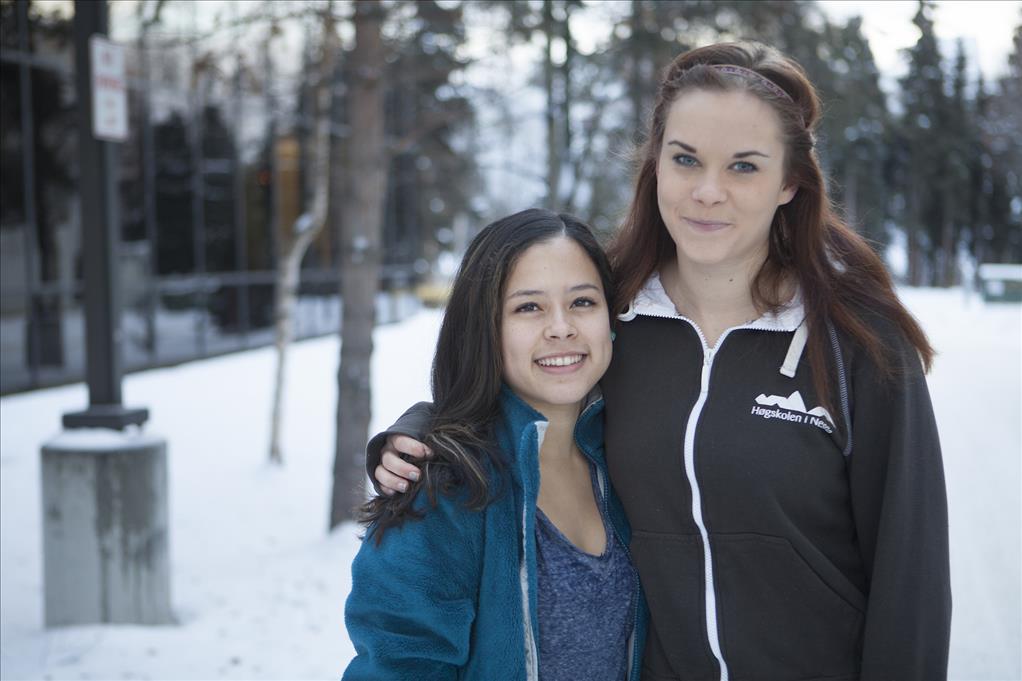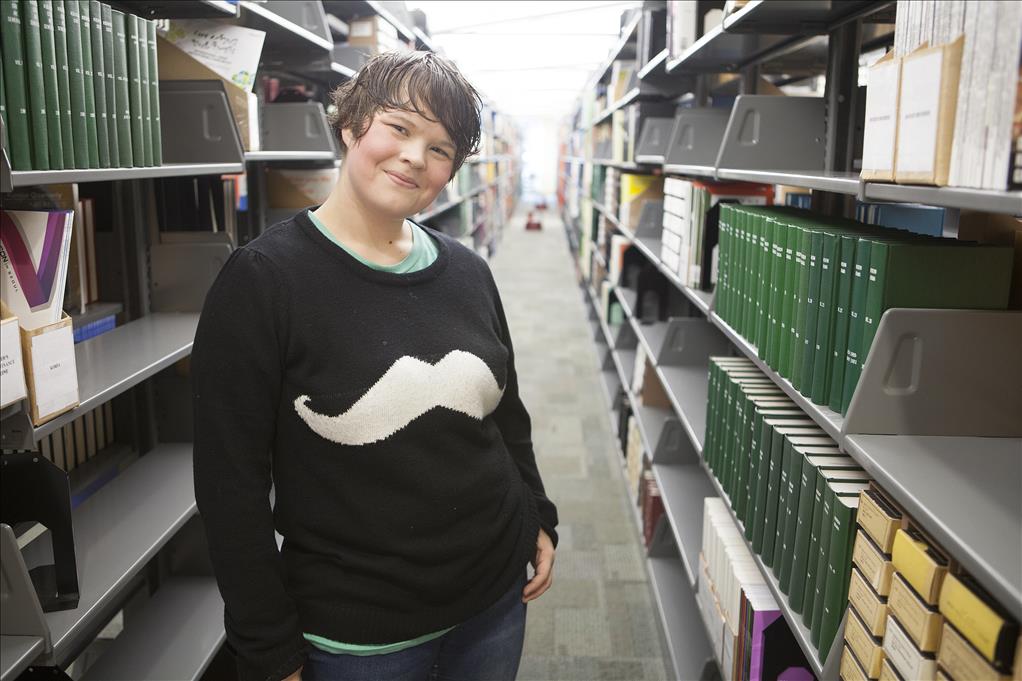Millennials who care about Alaska’s future
by Jamie Gonzales |
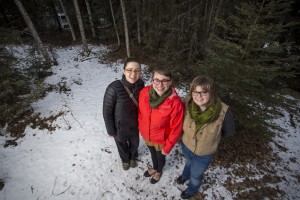
UAA Sustainability Club officers, left to right: Hope Meyn, Kelsi Swenson and A'Lena Sorenson. (Photo by Ted Kincaid/University of Alaska Anchorage)
Every U.S. news outlet was seemingly scandalized by the low voter turnout in the Nov. 4 general election, with the Washington Post heralding it as the lowest turnout since WWII. Final numbers for Alaska aren't yet tallied, but campaigns and community groups are already rethinking their strategies. How do they make the Millennials care? Take a look at Alaska's most recent primary election results and you'll see that fewer than one in four registered voters of the Millennial generation (aged 18-33) cast a ballot. For comparison, Alaska's Gen Xers, the much-maligned-in-their-youth "MTV Generation," had a not-awesome, but still more-engaged 38 percent voter turnout.
Last week, we chatted with three Millennials who fill their calendars with classes, activities and events that would earn them respect from even your most crotchety what's-with-young-people-these-days uncle. They're hopeful and they believe change starts with them, in their own community. Kelsi Swenson, Hope Meyn and A'Lena Sorenson are all club officers for UAA's Sustainability Club.
Swenson, a senior anthropology major, is wrapping up her first semester as the club president. This is Meyn's second year as a club officer. A senior pre-nursing major, she is club treasurer. Sorenson, a junior environment and society major, is the Club Council representative. All three are transfer students and very good sports about weighing in on questions about Millennial ennui.
"I feel like our generation is-this has been said about every generation-but I think we are the most instant gratification generation," said Meyn. "Voting doesn't reward that. You don't get to see the result of your individual action. You see the result of everyone's collective action and you don't see it immediately."
Sorenson agreed and added, "It's easy to feel like your voice and your vote get lost in this sea of other people who have more experience with these issues and these people."
The prescription they recommend to their friends and acquaintances who feel disenfranchised? Get involved at the grassroots level. Find one issue that you're passionate about and add your voice to the chorus.
Making sustainability feel valuable and fun
This semester, you may have run into Swenson or one of her colleagues in a hallway or at a table beside the Social Sciences Building Kaladi Brothers. After starting the year with a plan to bring more local food to campus, the Sustainability Club shifted gears upon learning more about the results of UAA's Prioritization process. They were startled when they heard the Office of Sustainability, which has been responsible for helping UAA to make campus buildings more energy efficient as well as overseeing the campus-wide recycling efforts, among other things, landed in the fourth quintile. Programs in that category are slated for transformation.
"We rallied around that and decided before we make any big projects or successfully accomplish any of our goals with those projects, we really need to establish a strong presence for sustainability on campus," said Swenson. For them, that meant getting to know the decision-makers and policy-makers at UAA. It also meant outreach among students, so they could speak not just as the Sustainability Club, but as a voice for students.
Club membership hovers at around 10-15 students, said Sorenson, but they maintain a mailing list of 200-300 students who have expressed interest in particular issues and who come to club events.
"We found that it's just as important to have a one-on-one relationship with members [as with administrators]," said Swenson. "No one is going to care about anything on campus unless they care about you and feel they can trust you, so we've made that an important part of our club."
But what they really don't want to forget among their serious talks with administrators and students is that sustainability can be fun!
They've put together a great slate of events to celebrate Recycle Day, on Nov. 13. America Recycles Day is actually Nov. 15, but the club wanted to kick things off on a day more students would be on campus and have access to activities. According to Meyn, there will be upcycled and recycled arts and crafts projects where you can etch your own glassware, a showing of the movie Trashed, great food and prizes and a showing of recycled art from the campus housing community. Stay tuned into events on the club's Facebook page. Also a great way to follow other projects the club is passionate about.
Club involvement and activism after graduation
Swenson didn't really consider herself a community activist until college. She cared about the environment, but it wasn't until she took Environmental Ethics with professor Raymond Anthony and History of Political Philosophy with professor Jim Muller that she started to see how she could be more of a voice.
"I talked the talk, but didn't walk the walk," she said.
Meyn, on the other hand, grew up eager to pitch in with Habitat for Humanity alongside her carpenter dad. She saw early on, both in church and in community nonprofit work, how important individual contributions to a cause could be.
All three officers are happy to have the strong support of their families as their interests in community activism grow. In Swenson's family, her passion has even become contagious.
"I was working on a 'No Pebble Mine' campaign and my mom helped table with me and passed out stickers back at home," said Swenson. "She said, 'I support you so much and it's making me want to get involved.' People you care about want to support you and then they usually end up getting involved."
For students who want to be involved with sustainability projects on campus, the club meets on Mondays at 3 p.m. in PSB 103.
"I've learned so much through this club. How to plan things, how to organize, how to lead people," said Meyn. "Learning how to build people up and make a difference is important for any field that you go into after college."
Written by Jamie Gonzales, UAA Office of University Advancement
 "Millennials who care about Alaska’s future" is licensed under a Creative Commons Attribution-NonCommercial 4.0 International License.
"Millennials who care about Alaska’s future" is licensed under a Creative Commons Attribution-NonCommercial 4.0 International License.










